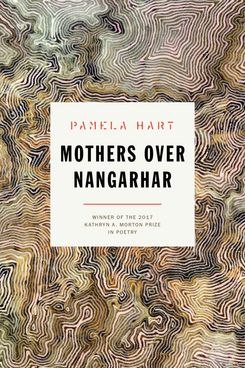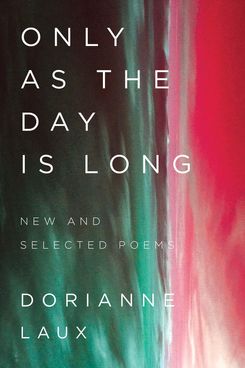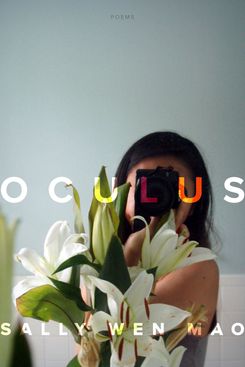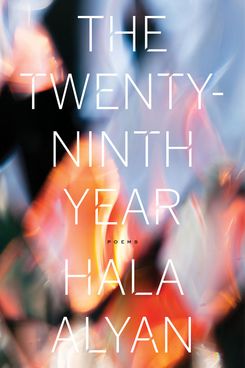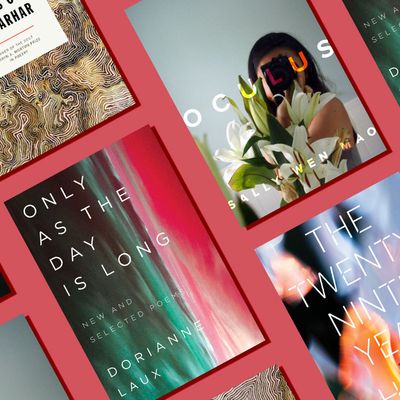
Poetry ought to be the preeminent form of this age ÔÇö hell, every age. In a smattering of words, a poem can eulogize, satirize, criticize, proselytize.
The greatest verse clues us into what Jane Hirshfield calls ÔÇ£poetryÔÇÖs knowing,ÔÇØ its function of ÔÇ£clarification and magnification.ÔÇØ ItÔÇÖs the quintessential hybrid form: an amalgam of essay, lyric, story, polemic, and diary. Poets are penguins, to paraphrase E.E. Cummings. They use their wings to swim.
More importantly, poets can reshape the world. In a time of duplicity and disharmony, they employ multi-dexterous verse for numerous kinds of revision ÔÇö political, personal, aesthetic, and historical, to name a few. Four standout collections in this first month of the new year specialize in such transformation. These poets reconsider the past in order to to enrich the present and future. They recast popular American films as woeful monuments to bigotry; they use obsequious conversations at the supermarket to comment on war; they turn solemn prayer into self-prosecution. There is always more going on than what our eyes can see or history describe, and poets seek out those neglected perspectives and endow them with eloquent vigor. As one of them, Sally Wen Mao, yearns to say to a young girl like her, to all girls like her, sometime in the future: ÔÇ£go aheadÔÇö / rewrite this.ÔÇØ
Though the canon abounds with war poets ÔÇö Homer, Wilfred Owen, Robert Graves, Walt Whitman ÔÇö fewer describe the complexities of the home front. Pamela Hart works to correct this by telling the stories, including her own, of the parents, spouses, and children of those who serve. ÔÇ£This isnÔÇÖt a story of war,ÔÇØ she writes. ÔÇ£This is the mother on the idea of a son at war.ÔÇØ
Mothers dominate the collection. ThereÔÇÖs Joanie, ÔÇ£not good at talking / when heÔÇÖs home on leaveÔÇØ; Mary, who says ÔÇ£The Marines were good / for himÔÇØ; and Kathy, who asks about your son ÔÇ£but really / wants to talk about her son.ÔÇØ These women attend PSTD meetings, compose stilted emails, and try, as best as they can, to ÔÇ£[keep] the household humming.ÔÇØ What unites them is the will to persist in hope while dreading the knock on the door ÔÇö like ÔÇ£Private Jonathan Lee GiffordÔÇÖs Mother,ÔÇØ who ÔÇ£says she doesnÔÇÖt concern herself / With thoughts about the cost of war / Because there are days when she sits in her kitchen / Turning the blender on and off.ÔÇØ
Hart also considers ancillary war heroes, like Stephanie Kwolek, the scientist who invented Kevlar, and Paula Loyd, a researcher who was set on fire in Afghanistan in 2008. ÔÇ£On the Orange JumpsuitÔÇØ is a powerful eulogy for journalists James Foley and Stephen Soloff and aid worker David Haines, all murdered by ISIS, and Mohamedou Ould Slahi, who served 14 years at Guant├ínamo Bay without being charged for a crime.
Hart writes of these people, and her own struggles, with unwavering humanity. Though some of the poems on their own might read as slight, when taken together they form a necessary counter-narrative to the war story weÔÇÖre often told, dismantling what Wilfred Owen called ÔÇ£the old lie: Dulce et decorum est / Pro patria moriÔÇØ: It is sweet and proper to die for oneÔÇÖs country.
Laux writes with startling directness of the physical and sexual abuse she and her sister suffered at the hands of her father and its devastating reverberations throughout her adult life. ÔÇ£I want it back,ÔÇØ she declares of her youth in ÔÇ£Ghosts,ÔÇØ after watching a young couple across the street paint their kitchen. ÔÇ£She could have lived so many lives.ÔÇØ But there are other poems, just as frank and openhearted, that celebrate the wondrousness of sex (so skillfully that fiction writers should take note) and the depths of her relationships ÔÇö reclaiming adult intimacy from the clutches of her tragic childhood.
Beyond her admirable tenacity and spirit, Laux is just plain wise ÔÇö┬áand refreshingly unpretentious in her wisdom. In ÔÇ£Democracy,ÔÇØ upon seeing some unfortunate souls on a city bus, she realizes ÔÇ£why people become Republicans,ÔÇØ for ÔÇ£if it werenÔÇÖt for [those people] you could believe in god, / in freedom.ÔÇØ But they do exist, and removing them from public view will not make the problems they represent go away. As grief overcomes her in ÔÇ£Abschied Symphony,ÔÇØ the poet writes:
Death is not romantic. He is dying. that fact
is stark and one-dimensional, a black note
on an empty staff. My feet are cold,
but not as cold as his, and I hate this music
that floods the cramped insides
of my car, my head, slowing the world down
with its lurid majesty, transforming
everything I see into stained memorials
to life
LauxÔÇÖs new poems arrive at the end of the collection as a perfect finale, which benefits from what we now know of her life. So when she writes, in ÔÇ£Death of the Mother,ÔÇØ ÔÇ£You taught us how to glean the good / from anything, pardon anyone, even you, awash as we are in your blood,ÔÇØ we understand the bewildering complexity of this act of posthumous forgiveness, as well as the staggering generosity of the poet who committed it.
Working her theme of the eye (in Latin, oculus), Mao explores the way Chinese women are viewed ÔÇö in every sense of that word ÔÇö in our culture, past and present. In the first of two poems titled ÔÇ£Oculus,ÔÇØ she considers a young girl from Shanghai who posted her suicide on Instagram. ÔÇ£No ResolutionÔÇØ is dedicated to Ashley Han, the daughter of a man who ÔÇ£was pushed into the train tracks of an oncoming Q train.ÔÇØ Mao invokes the first Chinese-American film star, Anna May Wong, in a scathing series of poems that traverse the history of racist stereotypes in movies, from Breakfast at TiffanyÔÇÖs (ÔÇ£I yawn / at another generation of white men in yellowfaceÔÇØ) to Sixteen Candles (ÔÇ£Now itÔÇÖs 1984 and Long / Duck Dong is the white girlÔÇÖs houseguest. He dances, / drunk, agog with gong sounds.ÔÇØ). Anna May Wong mutates, in the heartbreaking finale, into a ÔÇ£webcam girl.ÔÇØ Another figure, Afong Moy, who a note informs us was ÔÇ£the first Chinese woman to travel to the United States in 1834,ÔÇØ tells of being put on display by men who ÔÇ£knew IÔÇÖd make / it rain for them.ÔÇØ
Mao presents the many ways in which Chinese people have become unwitting spectacles for American audiences on celluloid, online and in life ÔÇö gazed at through a lens they donÔÇÖt control, even when theyÔÇÖre behind the camera. By giving voice to, composing odes for, or revising these figures, Mao creates a poignant, albeit cautious, optimism. The final poem, ÔÇ£Resurrection,ÔÇØ finds her spotting subway posters for a ÔÇ£New-York Historical / Society exhibition,ÔÇØ which feature the visage of Anna May Wong. ÔÇ£But dear universe,ÔÇØ Mao writes, ÔÇ£if I can recognize / her face under this tunnel of endless shadows / against the luminance of all that is extinct / and oncoming, then I am not a stranger here.ÔÇØ
Oculus is a deftly structured volume of hauntingly perceptive poems, peering backward through the 20th century while penetrating our contemporary moment. ItÔÇÖs an homage to pioneering Chinese Americans and an indictment of Asian representation in American culture, which never for a moment shies away from the difficult tasks of taking on race and history and technology all at once, but confidently looks them right in the eye, unblinking.
Of all the books here, AlyanÔÇÖs best exemplifies poetryÔÇÖs hybridity. She blends forms, tangles modes, travels through time and space and leaps from the intensely personal to the acerbically political. With scathing wit, fierce self-examination, and challenging syntax, AlyanÔÇÖs fourth collection uses the threshold age of the title to investigate the poetÔÇÖs struggles with alcoholism, anorexia, sexuality, and her own jumbled identity.
Born in Illinois and raised in Kuwait, Oklahoma, Texas, Maine, and Lebanon, Alyan studied in Beirut, New York City, and New Jersey. Her poems reflect the cultural collage of her upbringing. ÔÇ£IÔÇÖm divisible only by myself,ÔÇØ she writes in ÔÇ£Dirty Girl.ÔÇØ┬á In ÔÇ£Gospel: Texas,ÔÇØ she recalls her ÔÇ£grandmother / asking the Burger King cashier / for pommes frites.ÔÇØ ÔÇ£Pray Like You Mean ItÔÇØ infuses the Al-Fatiha, the opening prayer of the Quran, with the speakerÔÇÖs catalogue of sins, including ÔÇ£hundred-dollar meals thrown up / one tequila / over speed limitÔÇØ and ÔÇ£a stolen bag of cocaine.ÔÇØ
The men encountered here range from drunken, one-night regrets (ÔÇ£I kiss the bartender who calls me disasterÔÇØ) to philanderers (ÔÇ£he texted me during the fireworks to say he had a wifeÔÇØ) to the downright monstrous (ÔÇ£IÔÇÖll fuck the Arab out of youÔÇØ). But just as frequently, Alyan indicts herself. In ÔÇ£IÔÇÖm Not Speaking First,ÔÇØ she writes, of her husband, ÔÇ£You wanted me thin, so I ate. You wanted me sober / so I drank. IÔÇÖve always liked my lies.ÔÇØ And later: ÔÇ£You know me. IÔÇÖll spin my bruised hipbone / into an affairÔÇØ ÔÇö one of several infidelities in the book.
These honest assessments begin, finally, to yield hard-won results. After she got sober, a nurse  asked me about God. I said I have held / the engine of myself against my own ear and, dear miracle, / I recognized the song. Alyan takes great risks, drips her full, naked self onto the page, and inspires her readers to embrace and examine our gravest mistakes, for every part of ourselves is a piece of a complicated puzzle that we cant  mustnt  stop trying to solve.


